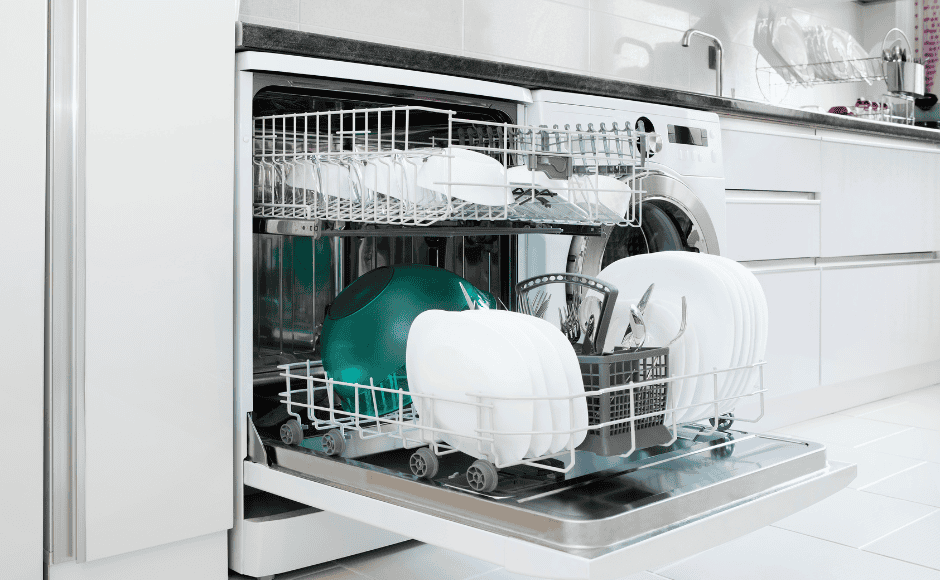
In the quest for a more sustainable lifestyle (and lower energy bills), your dishwasher can play a more important role than you might think. Using this humble appliance wisely can help you conserve water and energy, ultimately saving money and protecting our natural resources—without compromising on clean dishes. Here are some tips from the U.S. Department of Energy on how to turn any dishwasher into a “high-efficiency dishwasher.”
How to Maximize Dishwasher Efficiency
Scrape, Don’t Rinse
Modern dishwashers have become extremely effective at removing food debris, so there’s no need to waste water with a pre-rinse.
Load It Right
The way you load your dishwasher can significantly impact its efficiency (and save you and your partner some arguments about conflicting loading styles):
- Organize dishes so that water and detergent can reach every item.
- Avoid overcrowding items; this helps to ensure a thorough clean without the need for re-washing, which doubles water and energy use.
- Place taller items on the sides or back.
- Place cups, bowls, and dishwasher-safe plastics on the top rack to allow for optimal cleaning and drying.
- Make sure nothing is blocking the wash arms or other moving parts.
Wash Full Loads to Save Water
Running your dishwasher when it’s fully loaded is a simple yet effective strategy for maximum dishwasher water efficiency and savings because dishwashers use a fixed amount of water per cycle regardless of how full they are.
Choose Your Cycle Wisely
Choosing the right wash and dry options can make a significant difference in energy and water usage. If your machine has one, use the “eco” or similarly labeled cycle to consume less water and energy. Otherwise, you can create your own eco mode by tailoring your wash setting to the current load needs as closely as possible. In addition, consider using the no-heat dry cycle or air-drying your dishes after the wash cycle is complete.
Pay Attention to Temperature
The temperature of the water entering your dishwasher influences its energy consumption, as heating water accounts for a significant portion of its energy use. Ensure that your water heater is set to an efficient temperature (around 120°F) for best energy- and money-saving results.
Don’t Forget Regular Maintenance
Regular maintenance, such as cleaning the filter and ensuring spray arms are free of debris, is crucial for optimal performance. A well-maintained dishwasher operates more efficiently, using less water and energy to achieve the same clean results.
Save More with Michigan Saves
Michigan Saves can help you save money and energy—now and all year long. Our home and business financing help you quickly turn your home or business into a comfortable and energy efficient space through low-interest financing for eligible energy upgrades.
If saving money and energy is your goal, you’re in good hands. Get professional help from one of our authorized Michigan contractors in your area. Start saving with us today!




